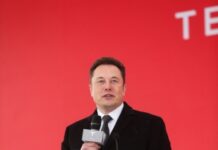Chennai— South Korea’s Hyundai Motor Group on Wednesday said it would transform all its models to software-defined vehicles by 2025.
The group will also introduce vehicles in 2025 based on its two new EV platforms, eM, and eS. The new EV platforms will be created under its Integrated Modular Architecture (IMA) system.
“In 2025, Hyundai Motor Group will present vehicles with two platform types: eM, a passenger EV-dedicated platform; and eS, an exclusive platform for Purpose Built Vehicles,” said Paul Choo, Executive Vice President of Head of Electronics & Infotainment Development Center of Hyundai Motor Group.
“These new platforms are evolving under Hyundai Motor Group’s ‘Integrated Modular Architecture’, which will lead to further standardisation and modularisation of core components of electric vehicles, such as batteries and motors, while offering advantages in sectors additional to electric vehicles,” he added.
By standardising the batteries and electric motors, for example, which currently vary across each EV model, the group will flexibly apply common components to each vehicle, thus efficiently expanding its lineup.
According to Hyundai, it will give its customers the freedom to upgrade the performance and functionality of their vehicles anywhere at any time, like the software upgrades of mobile phones.
The group said it would keep all its models including those already on the roads are software updated over the air (OTA).
“Based on the group’s next-generation EV platform, integrated controller, and an internally developed Connected Car Operating System (ccOS), all group vehicles will be equipped to receive OTA software updates by 2025,” Hyundai said.
The group expects 20 million vehicles to be registered to its connected car service worldwide by 2025.
“By transforming all vehicles to Software Defined Vehicles by 2025, Hyundai Motor Group will completely redefine the concept of the automobile and take the lead in ushering in a never-before-experienced era of mobility,” said Chung Kook Park, President and Head of R&D Division, Hyundai Motor Group.
Connected vehicles equipped with cutting-edge telecommunication features will create unprecedented value and possibilities and provide customers personalised services, such as software subscriptions.
Furthermore, connected car data will network with future Group mobility solutions, including Purpose Built Vehicles (PBVs), Advanced Air Mobility (AAM), robotaxis and robots.
According to the group, by 2030, it would invest 18 trillion won in resources, including the establishment of a new Global Software Centre to bolster its software capabilities and accelerate Software Defined Vehicle development.
As regards customisation, the Hyundai Group will also offer FoD (Feature on Demand) services next year. This will give customers the ability to select and purchase functions and features that meet their needs and tastes, and the freedom to create vehicles that best match their lifestyles.
The vast amount of data generated by the 20 million subscribed vehicles to the Group’s CCS will provide the basis for the further development of personalised services. (IANS)







